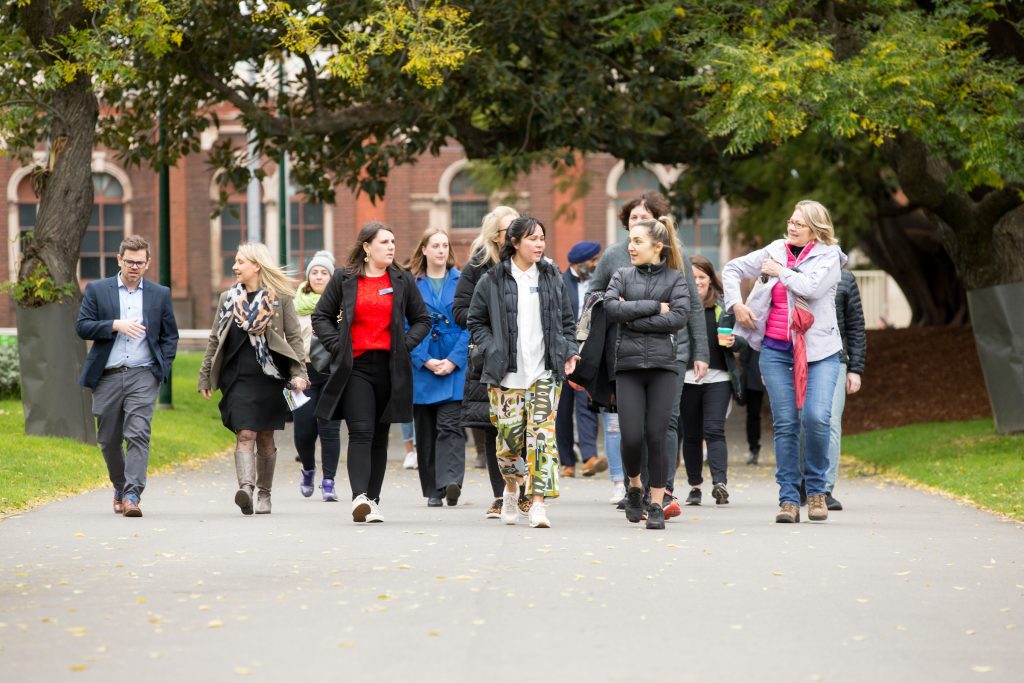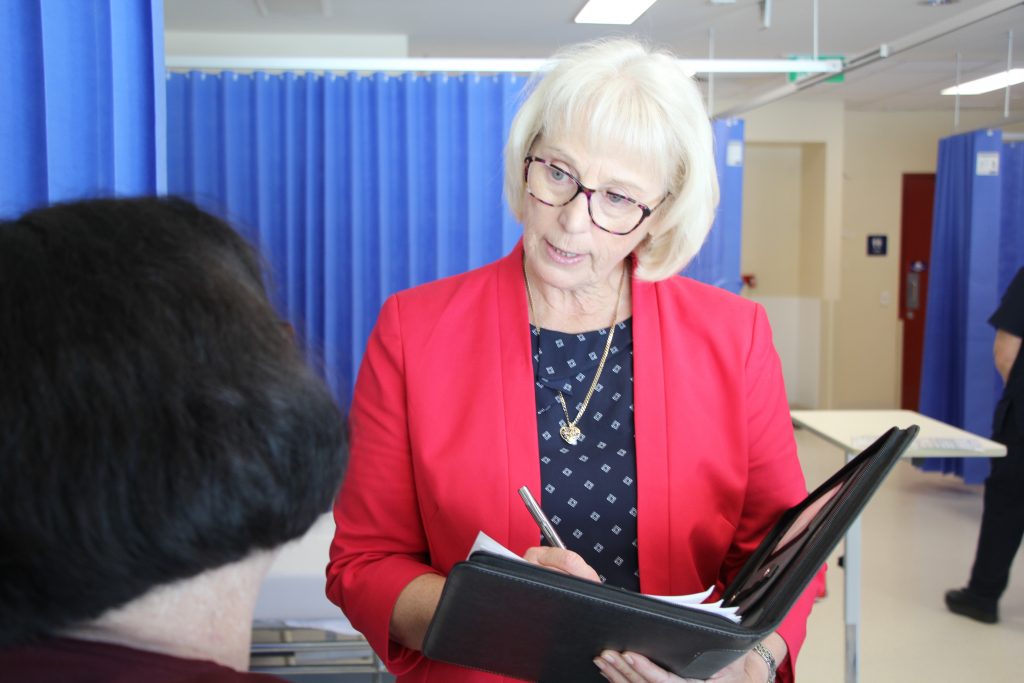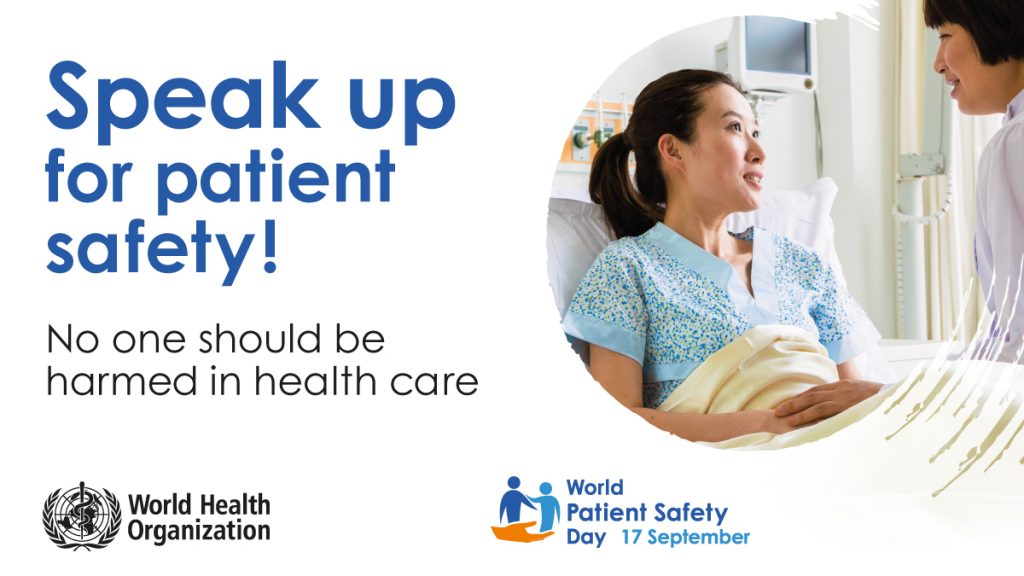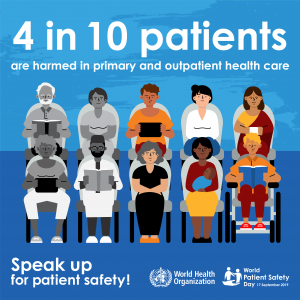A Q&A with The Beryl Institute President and CEO Jason Wolf
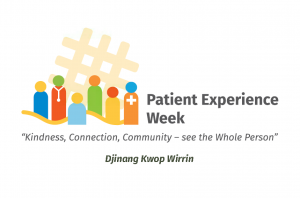
Jason Wolf is a passionate champion and expert in patient experience improvement. As President and CEO of, Jason has led the growth of the organisation as the leading global community of practice and thought leader on improving the patient experience and establishing the framework for the emerging profession of patient experience.
In the lead up to Patient Experience Week 2020, Jason spoke to us about the importance of working to continually improve the patient experience.
How and why did Patient Experience Week come about?
The first Patient Experience Week was held in April 2014. The focused week was inspired by members of The Beryl Institute community to celebrate healthcare staff impacting patient experience. Taking pause during this week provides a focussed time for organisations to celebrate accomplishments, reenergise efforts and honour the people who impact patient experience every day. The first annual event also encompassed the former Patient Advocacy Week sponsored by the Society of Healthcare Consumer Advocacy (SHCA) after SHCA integrated with The Beryl Institute in January 2014.
What has the uptake of the movement been like around the globe?
PX Week has appeared around the globe in a number of ways, from the great celebrations championed right here in WA by the Health Consumers’ Council to efforts in the UK to recognise Experience of Care Week. While celebrations during Patient Experience Week are an underpinning of this movement globally, its observance serves as more of an acknowledgement of the work it takes to effectively champion and sustain experience efforts across healthcare settings globally. What may be more significant than just the celebration of Patient Experience Week is the acknowledgement of healthcare consumers themselves, as reported in our study Consumer Perspectives on Patient Experience (2018).1 This study included voices from Australia where 91% of consumers confirmed patient experience is extremely/very important to them overall and is significant to the healthcare decisions they make. This means that as we celebrate Patient Experience Week, every day provides an experience opportunity and comes with a clear expectation from those served by healthcare systems around the world.
In your view, what areas within health care have the biggest impact on patient experience?
I would suggest ALL areas of healthcare impact the experience people have. It is what led us to underline the importance of an integrated view of experience that acknowledges quality, safety, service, access, outcomes and more are all part of the experience one has in healthcare. It is not bounded by the walls of a clinical encounter.
When looking at healthcare through the eyes of the patient or family member, we see that experience is directly affected by quality, safety and service efforts, and influenced for some by cost and broader public (population) health issues that play a role in both clinical and organisational decision making. From an operational perspective, quality, safety, service, cost and outcomes may be distinct areas of work, but they are not usually seen as distinct by the individual in a patient bed or at the bedside, in a waiting room or in the surgery suite, in a residence or in the recreation room. Although organisations may build efforts to address and improve each of these areas, the consumer of care in most cases does not distinguish between a quality encounter, safety protocol or service intervention as separate experiences, nor does he or she view cost—or, for that matter, broader population health issues that influence decisions—as separate.
In a similar light, we introduced the Experience Framework2 last year to further reinforce the integrated nature of experience in healthcare today. The Experience Framework includes eight strategic lenses through which any experience endeavour should be framed. It reinforces the integrated nature of experience efforts and provides a means to identify where you are excelling or may have opportunities to address. It also offers a means by which knowledge, resources and solutions can be aligned.
The eight lenses and the rationale for why they are essential to the experience conversation are:
- Culture & Leadership: The foundation of any successful experience effort is set on who an organisation is, its purpose and values, and how it is led.
- Infrastructure & Governance: Effective experience efforts require both the right structures and processes by which to operate and communicate and the formal guidance in place to ensure sustained strategic focus.
- Patient, Family & Community Engagement: Central to any experience effort are the voices of, contributions from, and partnerships with those receiving care and the community served.
- Staff & Provider Engagement: Caring for those delivering and supporting the delivery of care and reaffirming a connection to meaning and purpose is fundamental to the successful realization of a positive experience.
- Environment & Hospitality: The space in which a healthcare experience is delivered, and the practices implemented to ensure a positive, comfortable and compassionate encounter must be part of every effort.
- Innovation & Technology: As a focus on experience expands, it requires new ways of thinking and doing, and the technologies and tools to ensure efficiencies, expand capacities and extend boundaries of care.
- Policy & Measurement: Experience is driven and influenced by external factors and systemic and financial realities and requires accepted and understood metrics to effectively measure outcomes and drive action.
- Quality & Clinical Excellence: Experience encompasses all individual encounters and the expectations they have for safe, quality, reliable, and effective care focussed on positively impacting health and well-being.
Through the Experience Framework, we can create a more efficient connection of needs to knowledge, strategies to resources and opportunities to solutions, expanding the collective global dialogue through a common structure for focus and action. In having a means to align efforts at a macro level, we are well-served to drive specific efforts and address specific needs to the level required in any healthcare endeavour.
What key messages would you share with health service providers around patient experience?
I have written about this often and would suggest a few key points I offered both in our most recent research paper, The State of Patient Experience 2019, and in our 2018 study, To Care is Human. In The State of Patient Experience 2019, I wrote:
In moving to the future of healthcare grounded in experience, this calls on us to recognise and act on a few fundamentals, many that have been essential to our focus at the Institute and some we have discovered in our constant work to improve the patient experience and elevate the human experience in healthcare.
- Patient experience is not something healthcare does, it is who healthcare is. It is when experience is simply seen as a thing to do, a box to check in a complex healthcare world, that its possibility is immediately weakened. Experience happens regardless of plan or process. It is who a healthcare organisation is and how it is perceived by others. It is incumbent on all in healthcare to build organisations that realise that every action, every encounter and every interaction create an experience for all involved. The choice then becomes to consistently create moments that will ensure the experience is one we aspire to offer.
- Patient experience is driven by all we do and, therefore, every effort must be approached with an integrated view of how it will impact the overall experience we provide. This is the essence of the experience framework itself. It is in understanding that all the elements it includes, the eight strategic lenses, while often operated distinctly in healthcare, must be seen as one integrated set of actions in ensuring an aligned and effective effort to drive experience and therefore the outcomes we look to achieve.
- To succeed externally, we must focus internally. The ideas that culture matters or that how we treat those who work in an organisation will impact the experience of those it serves are not new, yet healthcare leaders have been slow to turn this understanding into action. It is not an accident that the data from 2015 to today reveal a rapidly growing awareness of communication and employee engagement as the primary path to experience success. In fact, as revealed in the 2018 study To Care is Human, healthcare units who achieved high performance in experience all attested that after getting communication with patients and families down, the next critical element was to ensure the engagement, teamwork and well-being of those working in healthcare.3 If organisations are not willing to work on themselves first, they will never ultimately achieve the experience success they seek.
- A commitment to experience will not (and must not) ever end. In hearing from many organisations over time since the first state of patient experience study in 2011, one of the greatest issues raised is that of sustaining success. This raises an opportunity for all organisations to consider. While many organisations initially related success to survey outcomes and percentile rank, they too seemed to feel that once they hit a certain level, they had achieved what they could. Many of those organisations assumed this achievement would continue; they shifted their focus or took their foot off the gas on their efforts. All of this led to diminished scores, questions about efforts, frustration and even more significant actions in changing staff or redesigning process. These organisations thought experience was something to be achieved. That presents a false consideration, as that idea means it is done, over, accomplished, but the need to ensure the best in experience never truly ends. It is about a relentless pursuit of excellence, about consistent delivery of intent and an unwavering commitment to the human experience at the heart of healthcare that will lead to the outcomes all aspire to realise.
How are patient experience and health outcomes related?
I would simply add here that if we see experience as the integration of quality, safety, service, access and outcomes, then experience is a measure of the outcomes achieved. If we help people get better through improved care, that outcome is their experience. If we help them to live the remainder of their life, whether days or decades, with dignity and respect, that is their experience, and an attempt to distinguish experience from that undermines all we aspire to in healthcare.
Yes, there is prevailing research that shows high experience scores (for instance, represented by survey scores in the US) leads to better quality outcomes4, but this research only looks at experience as measured by the scores and does not acknowledge all we addressed above. The reality is that when people are engaged in care, feel listened to, are communicated to in a way they can understand and are treated with dignity and respect – all primary identified needs of healthcare consumers1 – then we tend to see better outcomes. The discussion of experience undermining quality is a dangerous and misguided conversation that still relegates experience to satisfaction. We are not addressing how happy people are in tackling experience, but rather we are committing to their health, their well-being and their humanity and are committing to the best in outcomes for all we serve. Thus, experience is inextricably linked to outcomes. They are more than related; experience is the ultimate outcome of safe, quality, reliable and human care that all patients and families deserve.
What does the future look like when it comes to patient experience?
We are now in the midst of an inquiry on the future of human experience over the next decade as a call to action and an identified opportunity for healthcare organisations globally. I would encourage you to read and react to the dynamic and provocative path we offer, consider ways in which you can engage, where you can add practice or evolve systems and processes and how each of us can contribute to the future of human experience we all aspire to see and know all in our care deserve.
The Future of Human Experience 2030 will be available from the Beryl Institute in late April.
References
- Consumer Perspectives on Patient Experience 2018 (https://www.theberylinstitute.org/page/PXCONSUMERSTUDY)
- Experience Framework: https://www.theberylinstitute.org/page/ExperienceFramework
- To Care is Human: The Factors Influencing Human Experience in Healthcare Today (https://theberylinstitute.org/product/to-care-is-human-the-factors-influencing-human-experience-in-healthcare-today/)
- How U.S. Health Care Got Safer by Focusing on the Patient Experience. (https://hbr.org/2017/05/how-u-s-health-care-got-safer-by-focusing-on-the-patient-experience)
*This article was originally published in Health Matters










